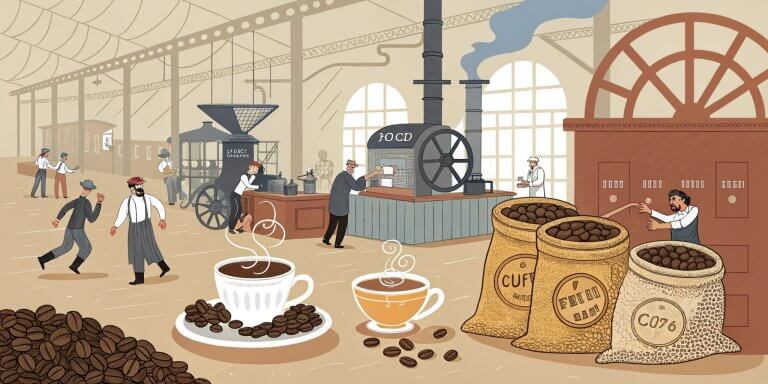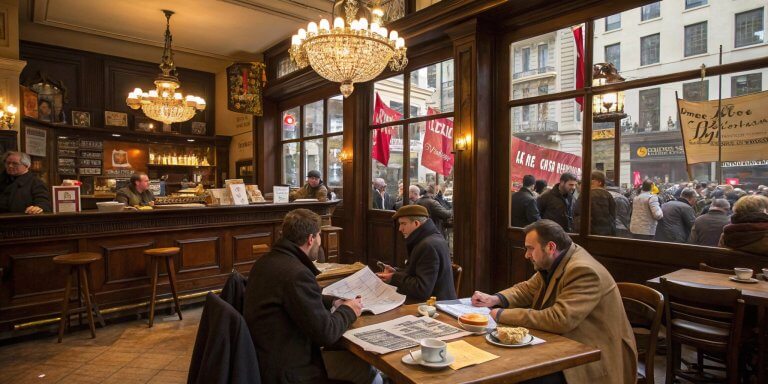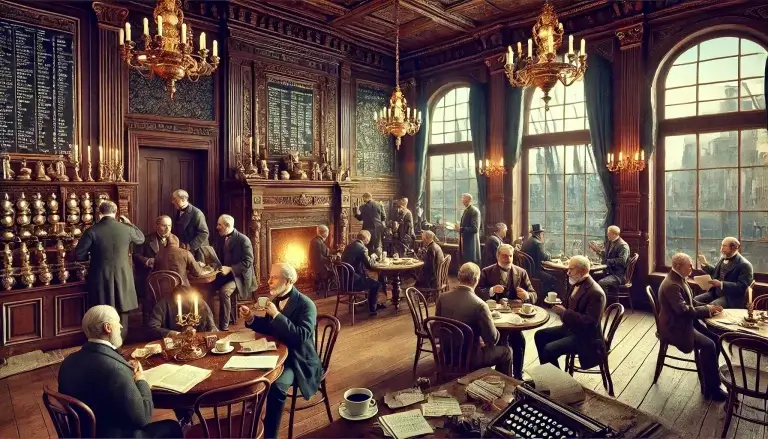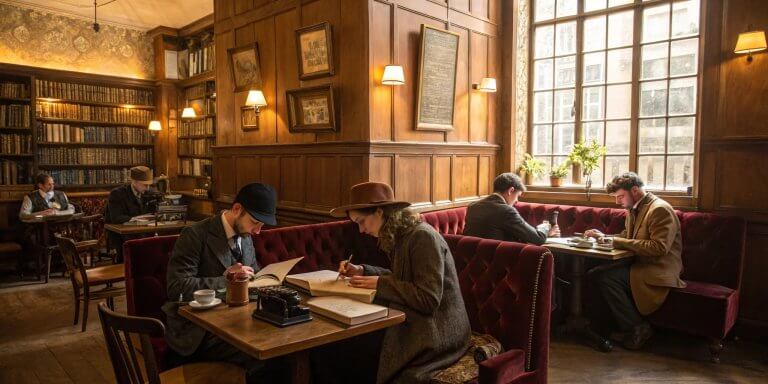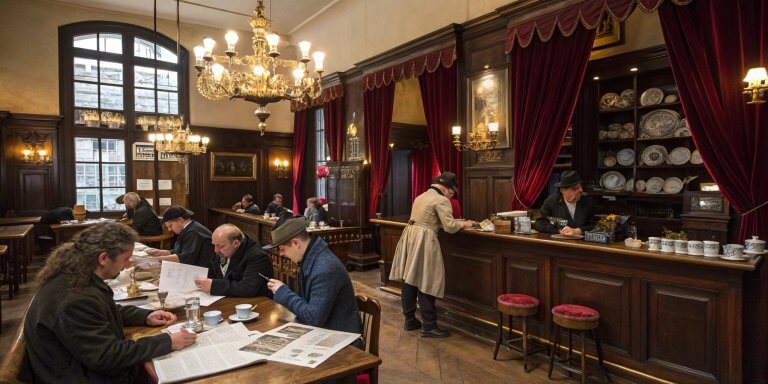Coffee’s Cultural Symbolism: Insights from ‘The Coffee House’

In many parts of the world, coffee is more than just a drink—it’s a symbol of connection, creativity, comfort, and routine. In The Coffee House: A Cultural History, coffeehouses are portrayed as vibrant hubs where people gather to enjoy coffee and engage in intellectual and cultural exchanges. Coffee became a symbol of social life, and its consumption reflected deeper societal meanings. This article delves into the cultural symbolism of coffee, its role in coffeehouses, and how it has shaped societies over the centuries.
Coffee as a Symbol of Social Interaction
A Brew That Brings People Together From its origins in the Middle East to its spread across Europe, coffee has always been linked with social interaction. In the 17th century, coffeehouses became centers for intellectual debate, where scholars, writers, and everyday citizens met to discuss politics, art, and science. These “penny universities,” called in London, were places where ideas were exchanged freely. Coffee, in this context, represented open dialogue and intellectual curiosity. It served as a unifying beverage that broke down social barriers, allowing people from different backgrounds to come together and share their views.
In Middle Eastern cultures, coffee continues to symbolize hospitality and warmth. Serving coffee to guests is a tradition rooted in generosity and community. Drinking coffee together strengthens social bonds and creates a sense of belonging, further reinforcing coffee’s role as a tool for social connection.
Coffee as a Catalyst for Rebellion and Change
In The Coffee House: A Cultural History, coffeehouses are portrayed as places where revolutionary ideas take shape. During the Enlightenment, coffeehouses in cities like London and Paris became hotbeds for political discussion. Writers, philosophers, and revolutionaries used these spaces to exchange ideas that would later fuel significant political changes, such as the French and American revolutions. In this context, coffee became a symbol of rebellion and free thought.
For example, Café de Foy in Paris was vital during the French Revolution. Revolutionaries gathered in such cafés to discuss strategy and share political pamphlets, solidifying coffeehouses as crucial meeting points for those seeking to challenge the status quo.
Coffee as a Symbol of Creativity and Inspiration
The Muse in a Cup Coffee is also closely associated with creativity and inspiration. Many artists, writers, and thinkers throughout history have turned to coffee to fuel their creativity. The stimulating effects of caffeine and the vibrant environment of a coffeehouse made it the perfect setting for brainstorming new ideas. The “wakeful sobriety” that coffee provided helped artists and intellectuals stay alert and engaged in their work.
In modern times, this connection between coffee and creativity persists. Writers and artists often seek out cafés as places to work, drawing inspiration from the lively yet relaxed atmosphere. Coffeehouses have become synonymous with creativity, acting as spaces where people can disconnect from their daily routines and focus on their creative endeavors.
Coffee as a Symbol of Comfort and Routine
A Warm Embrace in a CupWhile coffeehouses were historically spaces of intellectual ferment, coffee became a symbol of comfort and routine. For many people, a cup of coffee is a ritual that signals the start of the day. It provides warmth and solace, offering a moment of calm in an otherwise hectic world. This dual symbolism—coffee as both a stimulant and a source of comfort—has made it an essential part of daily life in cultures across the globe.
In Europe, for instance, coffee is often associated with moments of personal reflection and relaxation. Whether enjoyed alone or with friends, coffee is a comforting beverage that fosters solitude and social connection. The ritual of drinking coffee, whether in the morning or during breaks, is deeply ingrained in many societies
Coffee as a Global Cultural Symbol
Coffee’s role in shaping global culture is profound. From the Middle East to Europe and the Americas, coffee has been a unifying force. Each culture has its unique way of preparing and consuming coffee, but the underlying symbolism remains the same: coffee is a medium for conversation, community, and connection.
In the modern world, coffee culture has evolved with the rise of specialty coffee and third-wave cafés. These establishments, which emphasize quality, sustainability, and the artistry of coffee brewing, have rekindled the original spirit of coffeehouses as places of gathering and intellectual exchange. They also highlight coffee’s cultural significance in our daily lives.
Conclusion
In The Coffee House: A Cultural History, coffee is more than a simple beverage—it symbolizes connection, creativity, rebellion, and comfort. Throughout history, coffeehouses have served as spaces for social interaction, political discourse, and artistic inspiration. As coffee continues to be a part of our daily routines, its cultural symbolism remains as strong as ever. Whether enjoyed in a café with friends or as a quiet moment of solitude, coffee connects people across time and place, fostering individual reflection and collective action.

